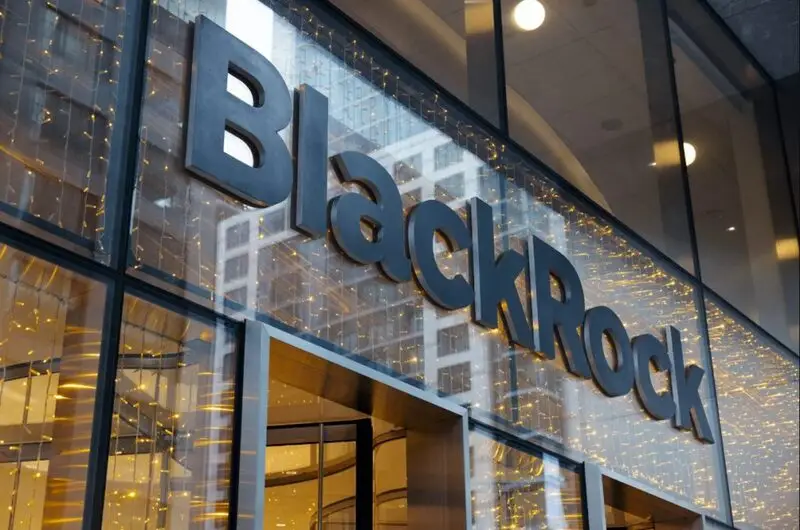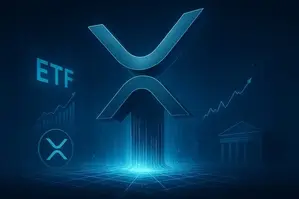Ethereum’s BlackRock deal is creating quite a stir right now in financial circles as the world’s largest asset manager takes a bold step into blockchain territory. Just a few days ago, on April 28, BlackRock went ahead and filed with the SEC to tokenize its massive $150 billion Treasury Trust Fund, creating what they’re calling “DLT Shares.” This move, at the time of writing, represents the largest real-world asset flow to Ethereum yet and could change how big institutions approach cryptocurrency and blockchain technology in general.
Also Read: De-Dollarization: 5 Oil Giants Now Settling in Yuan, Not USD
How BlackRock’s Ethereum Deal Could Address Market Volatility and Regulation Challenges

BlackRock’s Treasury Trust Tokenization
The Ethereum-BlackRock deal basically involves tracking ownership of BlackRock’s Treasury Trust Fund through blockchain technology with BNY Mellon handling the records. This particular fund mainly invests in short-term US Treasury securities to provide those stable returns that investors are looking for.
Former Ethereum developer Eric Connor said:
“Ethereum just scored a monster win. It is the biggest real-world asset flow to Ethereum yet.”
Ethereum just scored a monster win.
— Eric Conner (@econoar) April 30, 2025
BlackRock filed to tokenize its $150bn Treasury Trust money-market fund with a new “DLT Shares” class.
BNY Mellon will keep a blockchain mirror of every share on-chain.
Biggest real-world asset flow to Ethereum yet.
BlackRock also previously launched their BUIDL fund on Ethereum, which right now manages around $2.34 billion in assets. This new Ethereum-BlackRock deal kind of builds on their existing experience with institutional blockchain adoption.
Ethereum’s Position as Industry Standard
Ethereum currently has a pretty strong dominance in real-world asset tokenization with about 56% market share and approximately $6.2 billion in tokenized assets. This deal really reinforces this position even further.
Onchain Foundation head of research Leon Waidmann said:
“Institutions follow deep liquidity, credible neutrality, and battle-tested security. ETH is already their settlement layer.”
The Ethereum tokenization process seems to be becoming more and more attractive to major financial institutions that are looking for better efficiency and transparency in their operations.
Also Read: Shiba Inu’s Future If Bitcoin Soars to $2.4M: SHIB Holders Won’t Believe This
BlackRock’s Vision for Blockchain Finance
BlackRock’s crypto investment strategy appears to be accelerating quite a bit lately. The firm’s leadership has made some pretty clear statements about their support for blockchain technology and its potential.
BlackRock CEO Larry Fink said:
“Tokenization will revolutionize investing. Markets wouldn’t need to close. Transactions that currently take days would clear in seconds. And billions of dollars currently immobilized by settlement delays could be reinvested immediately back into the economy, generating more growth.”
This Ethereum-BlackRock deal represents a significant step toward this vision of transformed financial markets with faster settlement times and more efficient capital use.
ETH Price Performance Despite Institutional Interest
Even with all the excitement around the Ethereum-BlackRock deal, ETH prices are still kind of subdued, hovering around $1,800 and down about 63% from those 2021 peaks we saw. The Ethereum market volatility continues to be a factor despite these positive institutional developments we’re seeing.
Interestingly enough, BlackRock’s spot ETH ETF has still accumulated approximately $162 million worth of Ether over just four trading days, which shows some institutional confidence despite the current Ethereum market volatility that we’re experiencing.
Also Read: Top 3 Cryptocurrencies That Could Hit New All-Time Highs In 2025
Impact on Cryptocurrency Ecosystem
BlackRock’s crypto investment could potentially address some key industry challenges, including those security risks through established custodians like BNY Mellon. Also, the Ethereum tokenization of major assets might help reduce market volatility by adding some institutional stability to the ecosystem.
Those cryptocurrency regulation concerns could be eased as major players like BlackRock engage properly with regulators. The Ethereum-BlackRock deal basically demonstrates how blockchain technology can be integrated within existing regulatory frameworks without causing too many problems.
BlackRock’s crypto investment represents a major vote of confidence in Ethereum’s technology and could speed up mainstream adoption of blockchain solutions in the financial world and beyond.






